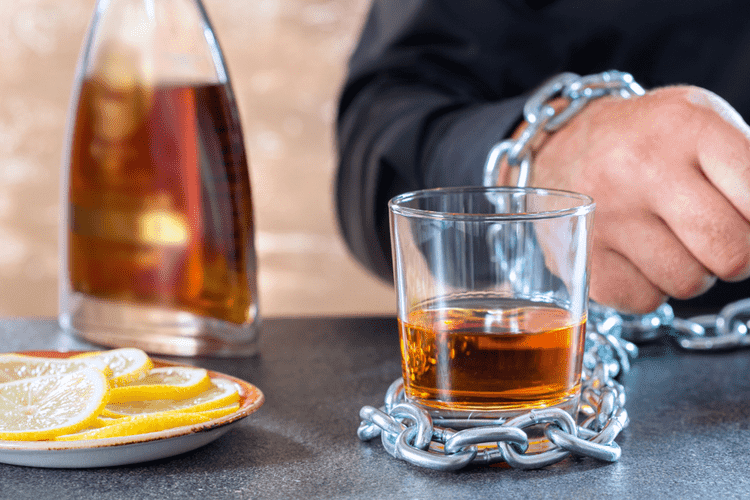Empathy and understanding are key during this stage, as individuals may feel vulnerable or anxious about sharing their struggles. It is essential for the assessors to create a safe and supportive environment where the individual feels comfortable expressing themselves openly. The goal is not only to identify the substance use disorder but also to uncover any root issues such as trauma, mental health conditions, or environmental factors that may be perpetuating the addiction cycle. Many rehab centers recommend participating in a 12-step program and encourage you to attend 30 meetings in 30 days. While this may be a big-time commitment, it helps keep the momentum you achieved in rehab going and lets you explore different groups and meeting times to find a place that fits you.
Understanding How Much Does Alcohol Rehab Cost Without Insurance
Once admitted, however, they may be given the chance to speak with a psychiatrist and potentially be prescribed additional medications to help them in their recovery. Below are just a few medications someone struggling with alcohol addiction may be prescribed in rehab. When someone you love is how long is drug rehab struggling with alcohol abuse, it’s hard to know where to turn. AddictionResource aims to present the most accurate, trustworthy, and up-to-date medical content to our readers.
What is a Typical Day in Drug Rehab Like?
- Inpatient detox is typically held in a medical facility or in the clinic’s in-house detox center.
- The detox process typically lasts anywhere from a few days to a week, depending on the individual’s substance use history, the substance they are detoxing from, and their overall health.
- At all rehab programs, people can expect to go through detox, abstinence, and maintenance.
- Sharing struggles, challenges, and successes with others in recovery can be an incredibly therapeutic and bonding experience.
- Drug detoxification is the initial step in the treatment process, aiming to rid the body of the substance while guaranteeing the patient’s safety and comfort.
Your commitment to a healthier and happier life is your greatest strength. The key is to remember that every challenge is an opportunity for growth. Career counselors, job coaches, and Alcoholics Anonymous support groups can provide guidance and resources for managing work and money. Many communities also have government or non-profit programs to help with this. With the sheer amount of activities and hobbies you can take up, it may be hard to know where to start.
Will I be allowed to contact my family while in rehab?

This depends on the state that the individual resides in, as not all states support involuntary drug rehabilitation. Florida is one example where such legislation exists; it is called the Marchman Act. Rehab aftercare, or continuing care, is an essential component of the recovery process, designed to support individuals as they apply the skills learned in treatment to real-world situations. Effective continuing care helps to prevent relapse, manage cravings, and deal with the everyday stresses of life without resorting to substance use. The Retreat is a leading alcohol and drug addiction rehab center in Minnesota, with a compassionate team dedicated to supporting you on your journey https://headless.collabpay.app/how-does-alcohol-affect-blood-pressure-2/ toward lasting sobriety.
One tip that can help is to keep up with a journal about different stressors and triggers you experienced and how you overcame them. This can help you walk through your past good choices and “play the tape forward” to remind yourself of the results of choosing to drink or use. If you or someone you know is struggling with addiction, remember that help is available. Recovery is possible, and rehab facilities provide the foundation for healing. The National Treatment Court Resource Center report on adult drug courts shows that over 90,990 individuals have participated in court-ordered treatment, with 56% graduating successfully. Over 140,000 juveniles participated in court-ordered treatment, with over 59% graduating successfully.
When you and your caregivers decide that you are ready to end your treatment program, you will be given an aftercare plan to ensure that you can keep practicing the skills that will help you stay sober. Often, this aftercare plan is created at the start of treatment, to make sure you can easily transition from one phase of treatment to the next. You will also receive nutrition classes, exercise classes, and any other programs that your personal treatment program suggests for your recovery. These may be held daily, or spread out throughout the week depending on your treatment center. At this point, you will seek out a support group and take up the responsibility of maintaining your substance-free life on your own. During detox, you will receive medical care to help you safely withdraw from your substance.
For most people with substance addiction, their substance use is no longer about getting high. Instead, it became a repetitive, daily process of avoidingwithdrawal symptomsand escaping from their reality. Drug rehab is the process where the deep issues around the addiction are identified and addressed.
Residential addiction treatment can have varying costs depending on the level of luxury services provided. Residential care, while offering 24-hour care, tends to be more therapy-focused and less hospital-like. It’s best for people who are ready to seek treatment and might not have progressed to extreme physical health problems. Similar to sober living homes, transitional living homes can provide additional services such as job training, education assistance, and other resources to help individuals rebuild their lives. Remember that these schedules may vary depending on the specific rehab center’s approach but maintaining the structure during evenings can be conducive to overall healing.

The Role of a Supportive Environment
It is important to find a support group of some kind, whether it is based on the 12-Step model or not. Self-Management and Recovery Training (SMART™) is one of the most popular alternatives to 12-step groups. SMART™ is based on research-proven methods for recovery and teaches people that they can take control of their addiction. Alternatively, groups like teenagers may find support groups with their problems in mind at treatment centers. Support groups for members of the LGBTQ community may be available, as groups may be for members of specific ethnic groups.
For Loved Ones
Consistent participation in support groups doubles the chances of maintaining long-term sobriety. Many rehab centers also offer alum programs where former patients stay connected, attend sober events, and receive mentorship from others in recovery. Individual therapy is a cornerstone of drug rehabilitation, offering a personalized approach to addiction treatment. These sessions enable patients to explore personal triggers, develop strategies for dealing with cravings, and set realistic goals for their recovery journey. The final stage of the rehabilitation process is aftercare and support.
